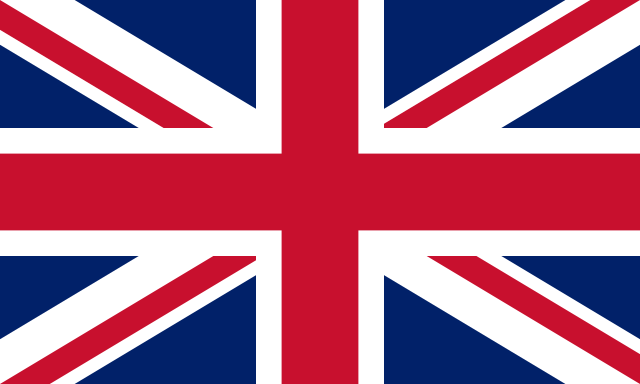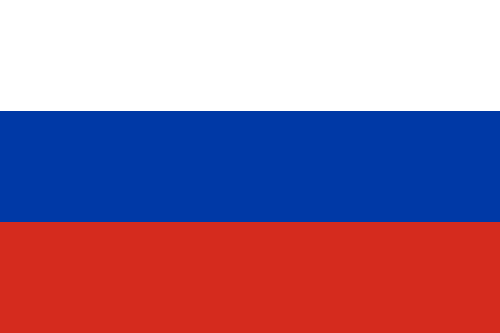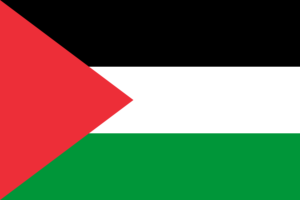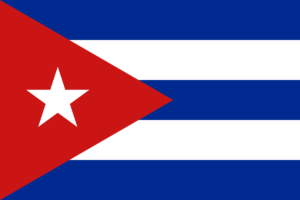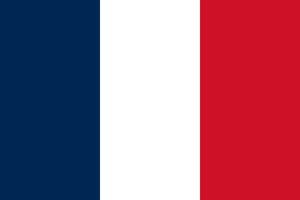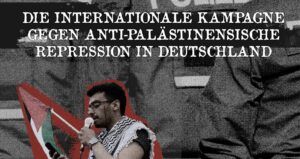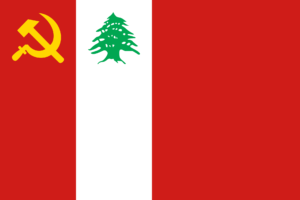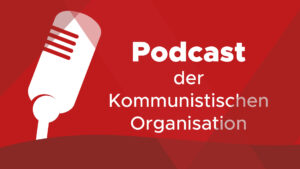ICJ rules: Israel to be tried for genocide against Palestinians
Themen: Palästina
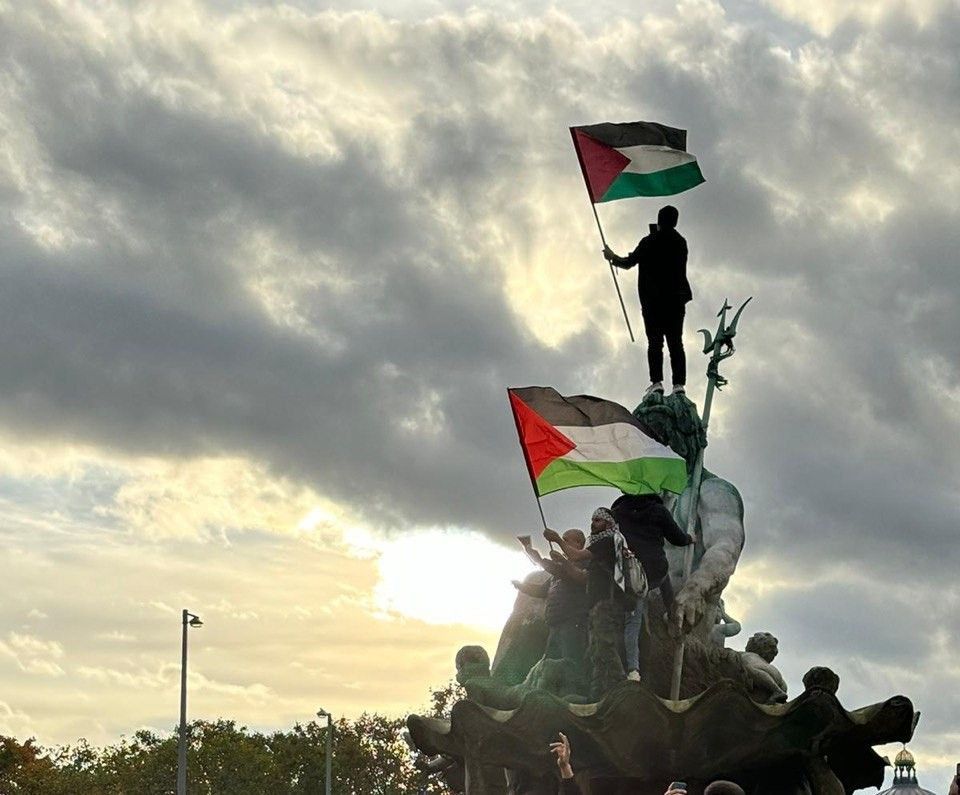
The ruling of the International Court of Justice is a victory for the Global South against the genocidal policies of the West. Israel is accused of genocide against the Palestinians. The court has now initiated proceedings to which Israel has long been entitled! The imperialist attitude of being the master race that the Western states show, finds this fact alone outrageous and tries to ignore and deny it!
The judgment provides many important starting points for Palestine solidarity. Israel has been obliged to take many steps and all states are obliged to ensure that they take place. We must use this against the German government!
The German government has shown itself to be complicit in genocide and has also been criticized internationally for this, including by the government of Namibia, where Germany committed the first genocide of the 20th century. We must publicly denounce the German government and put pressure on it to stop supporting the genocide!
This is an important first step on the political-legal level of the struggle for a free Palestine. The crucial part of this struggle comes from the Palestinian popular resistance and international solidarity with it. Palestine will not be liberated by courts, but by resistance. But South Africa’s victory at the ICJ is further proof that the West and its criminal regimes are not unassailable and not invincible.
__________________
The International Court of justice (ICJ) on 26th January, 2024 passed an interim ruling1 on the application filed by South Africa (SA)2 against Israel whereby SA had accused Israel of committing genocide in the Gaza strip. The application by SA was filed under the Convention on the Prevention and Punishment of the Crime of Genocide (Genocide Convention). Under the above stated ruling, the Court passed certain ‘provisional measures’ obliging Israel to take certain actions. The ruling however stopped short of calling for a complete ceasefire in Gaza. This has led to the attempts by the German as well as the imperialist press to claim victory over the ruling. Another reason why such claims arise is due to that fact that court did not decide whether or not Israel is guilty of committing a genocide. This too is being used by press to claim that the court has basically rejected South Africa’s claim of genocide and has merely asked Israel to be make sure that it prevents harm to civilians. However, this is an intentional attempt by entire press to hide from the public the real nature and the progressive aspects of the ruling which are a setback to Israel and its supporters. The very fact that the entire press is almost unanimously trying to play down the ruling as almost meaningless speaks much about the setback that Israel has suffered. The fact of the matter is that despite the shortcomings of the ruling, the Court has declared that prima facie a plausible case of genocide has been made against Israel and by doing so the Court has decided to put Israel on trial for genocide in Gaza.
- Progressive side of the ruling:
Brief facts and the main achievements of the ruling:
As already mentioned above, the present ruling comes as a result of an application filed by South Africa on 29th December, 2023 at the ICJ against Israel. The application accuses Israel of committing genocide in Gaza, wherein it makes two broad requests from the Court: One, to convict Israel of committing genocide. This is the merit/ content part of the case. However, passing a ruling on the content of the matter can be a very lengthy process, and in the cases of such gravity and urgency the Court cannot wait for the lengthy process to end for it to be able to intervene in the matter. This is where the second request made by SA comes in. Being aware of the fact that a ruling on content takes time, SA requested the court to pass provisional (interim) measures till the Court pronounces a final judgement on the case. The provisional measures requested by SA included a cease fire, stopping of killings, allowing humanitarian aid, etc. The argument of SA was that the matter is of such urgency that the court has to immediately intervene and stop Israel even before the court finds out that Israel is guilty of committing genocide. However, the court cannot just out of nowhere and on just about anyone impose provisional measures. In order to be able to impose these measures, the court has to show that “prima facie”, “on face of it”, a plausible case of genocide is made. Thus, in order to pass provisional measures, the court has to already go into the content of the matter, even before giving a final decision on the content of the matter. This was one of the central agendas of the day, to find out whether or not it can be said that a plausible case of genocide is made out against Israel for the Court to be able impose provisional measures. And briefly put, the court in its order declared that from a superficial look at the evidence provided, it looks like a Genocide is going on in Gaza. Meaning that the court already suspects Israel of committing a genocide. This is one of main achievements of the ruling which the bourgeois press is trying its best to hide from the public. This suspicion is enough for the court to intervene and pass provisional measures against Israel. The imposition of these measures is a setback to Israel and its supporters as these measures can only be imposed if prima facie it can be said that a genocide is going on.
However, this was not the main issue at hand. The main matter which the Court had to decide upon was whether it should reject SA’s application and throw out the case against Israel, or should it accept SA’s application against Israel and thereby put Israel on a trial for committing a genocide. And this is what the court decided: the Court decided that on the face of it, a case of genocide is made out against Israel whereby it is deciding to put Israel on a trial for Genocide. This is so because as mentioned above, the Court has already partly commented on the content of the matter where it found that a plausible case of genocide is made out for which Israel now has to stand on trial. This is what really took place. The matter of the day was not to decide whether or not Israel is guilty of genocide or not, the matter of the day was whether Israel should stand on trial for genocide. The bourgeois press is intentionally hiding this fact and misleading the public into thinking that Israel has scored a victory at the court.
Israel’s setback can be ascertained by taking a look at the requests that it made in response to the application filed by SA. In contrast to the very long and extensive requests made by SA, Israel’s request is very short and precise:
- “reject the request for the indication of provisional measures submitted by South Africa”
- “remove the case from the General List”
Basically, Israel asked the court, firstly, to reject all the requests made by SA for provisional measures, and secondly, and more importantly, to completely throw the case out. The entire struggle of Israel was to prevent the court from even entertaining the application. Israel wanted the court to completely throw the case out on 26th January. In order to be able to do this, Israel argued for the rejection of the case on technical grounds which will be discussed below. The logic here is that if an application gets rejected on technical grounds, it will mean that the court would not have the chance or the power to look into and comment on the content of the case at all. Israel wanted at all costs to prevent the Court from looking into the content of the application, because it knew that a superficial look at the content/ evidence would show that Israel is plausibly committing genocide in Gaza. The Court however, rejected the technical objection put by Israel, looked into the content of the application, pronounced that a plausible case of genocide is made out, passed provisional measures to stop Israel from further committing these acts and most importantly, put Israel on the trial for genocide of Palestinians.
On the concrete ruling of the court:
The court came to its decision by answering the following issues:
- Prima Facie Jurisdiction
- Standing of South Africa
- The Rights whose protection is sought and the link between such rights and the measures required.
- Risk of irreparable prejudice and urgency
- Conclusion and measures to be adopted.
To be able to come to its decision, the court had to provide answer the above-mentioned issues in the same order. It is to be noted already that almost every single contention and request made by Israel has been rejected by the court. The only thing that the court hasn’t done is to pass an order for cease fire. Apart from this, at the present stage of the case, the Court has prima facie accepted almost every argument put forward by SA.
- Prima facie Jurisdiction
To be able to announce any ruling at all, the court had to answer the question whether it has the jurisdiction/ authority to give out a ruling. It cannot just give out a ruling without certain criterion having been fulfilled. This point has a formal as well as merit/ content side. Israel disputed the authority of the court on both fronts. This is the 2nd request mentioned above made by Israel wherein it had asked the Court on ‘technical’ grounds to outrightly throw the case out.
- Formal side: For the court to have jurisdiction there needs to be an existing dispute between Israel and SA. Israel had contented that no such dispute exists with SA. A dispute means that a ‘claim of one party is positively opposed by the other.’ And for this opposite view to exist, there needs to be some sort of communication of these views. Israel contended that SA did not give the former reasonable opportunity to respond to its accusation before the latter went to the ICJ, meaning no such dispute exists.
Here the Court ruled that SA issued several “public statements in various multilateral and bilateral settings” where it clearly conveyed its view that Israel’s actions are in violation of the Genocide Convention. SA also raised the issue at an emergency special session of UN General assembly and also conveyed it directly to Israeli embassy in SA. The Court also said that Israel on the other hand dismissed any accusations of genocide when it published a document3 wherein it denied all the accusations of genocide. In light of these facts, the court decided that a dispute exists fulfilling the formal and the technical criteria of jurisdiction.
- Merit/ Content side: The content side of this issue meant that already at this point the court had to find whether the accusations of SA are capable of falling within the Genocide convention. Here, Israel argued that it will have to be proved that Israel is acting with ‘intention’ of committing these genocidal acts. Israel argued that it is acting with the intention to defend itself and that it is taking measures to mitigate civilian harm.
However, the court argued, that at the present stage of the case it is enough for the court to find out if Israel’s actions are capable of being termed as genocidal. The Court ruled that ‘at least some of the acts and omissions alleged by South Africa to have been committed by Israel in Gaza appear to be capable of falling’ withing the provisions of the Genocide Convention.
Thereby, the court rejected Israels objections and its request to“remove the case from the General List”. By doing so, already at this point, the Court ruled against Israel and put Israel on trial for the acts of genocide. This was the entire fight of Israel – to stop the court from putting it on trial – and it failed at that. Because a state can be put on trial only if it can be plausibly said that the state in question is suspected of committing a genocide. This high suspicion on Israel is further confirmed by the fact that the ruling has been passed by an overwhelming majority of judges, with 15-2 majority on almost every issue.
- Standing of South Africa
This section seemingly irrelevant for the present discussion, has nevertheless an important take away. The takeaway is that all states who are signatory to the Genocide Convention have a common interest in preventing genocide and that every state has an obligation to all the other states to comply with the provisions of the convention, every state is responsible to make sure that another state does not indulge in the act of genocide. This in turn means that all the parties are bound to comply with the ruling of the ICJ. All the parties to the convention are now under the duty to force Israel to implement the provisional measures imposed by the ICJ. This is where the Palestine Solidarity movement in Germany can bring action to force Germany to make Israel comply with the order. Germany is a signatory to the Genocide Convention which brings it under the obligation to do so. In a statement4 released by the foreign minister Annalena Baerbock after the ruling of the ICJ, she declared that Israel is bound by the ICJ ruling and must adhere to the provisional measures. This speaks to the strength of the ruling which has forced her make such a statement. Baerbock is an official of a state which is party to the genocide Convention and unlike the bourgeoise press she cannot mislead the public regarding the nature of the ruling of the court, as that could bring a charge of misleading the public on a sensitive issue like genocide. These are the undeniable achievements of the ruling which must be used to bring a check on the politicians who are complicit in the ongoing genocide in Palestine. This is why, the bourgeois press is trying so hard to hide the real nature of the ruling.
- The Rights whose protection is Sought and the Link between such rights and the measures required.
The object of passing provisional measures is to protect respective rights. Meaning, in order for the court to be able to pass such an order, it has to be shown that rights of a particular nationality, ethnicity, race or a religious group are under threat. It also needs to be shown that acts committed to attack the rights of such group should fall under the Genocide Convention and not some other law. This is where Israel argued that the ‘appropriate legal framework for the conflict in Gaza is that of international humanitarian law and not the Genocide convention’. Its logic is that in case of urban warfare, civilian causalities is an unintended consequence, and a mere use of lawful military force does not constitute genocidal acts. It argued that Israel is acting in self-defense, and it is taking the required efforts to mitigate the civilian harm. It argued that allegation of genocidal intent is against its government policy, which means that its acts cannot be covered under the genocide convention. However, the Court rejected Israel’s contention.
The convention seeks to protect the members of a national, ethnical, racial, or religious group from acts of genocide. The convention defines the genocide as following5:
“Genocide means any of the following acts committed with intent to destroy, in whole or in part, a national, ethnical, racial or religious group, as such:
(a) Killing members of the group;
(b) Causing serious bodily or mental harm to members of the group;
(c) Deliberately inflicting on the group conditions of life calculated to bring about its physical destruction in whole or in part;
(d) Imposing measures intended to prevent births within the group;
(e) Forcibly transferring children of the group to another group”.
Here, the Court declared that the Palestinians ‘appear to constitute a distinct “national, ethnical, racial, or religious group”, and hence a protected group withing the meaning of Article II of the Genocide convention’. Basically, against the wishes of Israel, the court has acknowledged Palestinians as a distinct group who HAVE rights which are PROTECTED under the Genocide Convention. This is a recognition of Palestinians which goes against the plans of Israel to annex the entire territory and force the population out by way of the threat of genocide, starvation, preventing births, etc. At the preliminary stage of the case, the court has recognized a threat that is existing to the Palestinians.
The court then comes to the question of ‘intent’ and says that ‘the intent must be to destroy at least a substantial part of the particular group’, and that ‘the part targeted must be significant enough to have an impact on the group as a whole’.
To show that a significant part of the group has been targeted, the court cited the fact that more than 25,000 Palestinians ‘have been killed’, around 63,000 people injured, around 360,000 housing units destroyed, and 1.7 million persons internally displaced. Further, the court cites the statements made by various high-ranking officials of the UN and other international bodies to describe the extent and gravity of the destruction, death, threat, hunger, etc. And then to bring the point of harm to significant part of group closer to the question of intention to cause such a harm, the court turns to the statements of various Israeli officials who are expressing the intent to harm or destroy a substantial or the entire population. It quotes the Israeli defense minister, the president and the minister of Energy and infrastructure of Israel. And by taking all these facts into account, the court basically rules that a plausible case of genocide is made out against Israel. At this point, in the eyes of the court, Israel is highly suspected of committing a genocide and has been put on trial for that.
From here, the court goes to the question of measures requested by SA to protect the above discussed rights of Palestinians. Israel had argued that the measures requested go beyond what is necessary at this point, therefore, the request for measures should be rejected. The Court however, ruled that it is plausible that the actions of Israel fall under the Genocide Convention and thus, some of the measures requested by SA have been accepted.
- Risk of Irreparable Prejudice and Urgency
For provisional measures to be passed, it needs to be shown that there exists an urgent need to pass such orders and that there is a real and imminent risk of causing irreparable damage if such an order is not passed. SA here cited the amount of people that are killed every day as a result of the ongoing siege by Israel. It also talks about the risk of starvation, dehydration and diseases, insufficient aids etc. Israel disagrees and claims that it is taking enough measures to protect the rights of civilians and cites various instances of its humanitarian work. However, the court rejects Israel’s claims and declares that it is plausible that if it doesn’t intervene immediately then Israel could do irreparable damage and continue to cause more deaths and destruction. Israel’s claim of taking necessary care and lack of necessity for the Court to intervene is rejected. This is very important, because Israel wants to carry out a total occupation of Gaza by either committing a genocide or by driving out the Palestinians. By intervening, the Court has not only become an obstacle to that, but it has also declared that Israel is on trial for Genocide. Whether or not Israel adheres to the ICJ ruling is a different matter, but the effective meaning of the ruling is that the court has intervened and has put Israel on trial.
- Conclusion and measures to be adopted.
The court declares that conditions required to pass provisional measures have been met and then goes onto pass the measures that need to be adopted:
- The court declared that Israel must take all measures to prevent: ‘(a) killing members of the group; (b) causing serious bodily or mental harm to members of the group; (c) deliberately inflicting on the group conditions of life calculated to bring about its physical destruction in whole or in part; and (d) imposing measures intended to prevent births within the group.’ The Court further declared that Israel must ensure that its military does ‘not commit any of the above-mentioned acts’
- Very importantly, and something which the media is completely hiding from the public, the court has asked Israel to punish those who directly and publicly made incitement to commit genocide.
- That it needs to allow humanitarian assistance in Gaza.
- And in what is probably the most important measure, the court has asked Israel to submit a report to the Court on all measures taken by Israel to ensure that it has obliged by the ruling of the court. The said report is supposed to be submitted in one month. Israel is on trial right now and it needs to show that its military has stopped killing Palestinians, stopped causing bodily and mental harm, stopped causing destruction and stopped its actions which prevents birth within the group. It needs to show that Palestinians are receiving every humanitarian assistance and every basic service they need, which includes food, electricity, shelter, water, medical care, sanitary amenities, etc. Anything short of this, Israel will be deemed to have failed in adequately carrying out the directives of Court. It also needs to show that it has taken measures to punish those who publicly incited genocide against Palestinians, that it is allowing adequate humanitarian assistance in Gaza. Israel is currently standing accountable to the court.
- Problematic aspects of the ruling:
Notwithstanding what has been mentioned above, the ruling does have a very problematic side as well. The order starts by referring to the actions of Hamas on 7th of October. This has set the entire context of the ruling of the Court. By doing so, the Court does not talk about the background of the entire occupation of Palestine. By taking Hamas’s actions as the starting point, the Court provides justifications to the military intervention of Israel which is why it hasn’t called for a cease fire. While it remains a matter of dispute as to what extent Israel would have abided by the ruling of the Court, a call for cease fire would definitely been something which could have been more concretely enforced by the international community who already sees Israel as committing a genocide.
However, before the Zionists and its imperialist backers delude themselves into believing that the actions of Israel will be judged in the context of the actions of Hamas, they need to be reminded that nothing justifies a genocide. The actions of Hamas will have no bearing whatsoever on the trial of genocide that Israel is now facing.
Conclusion:
Despite the ruling having problematic aspects, it has nevertheless delivered some strong setbacks to Israel and its supporters. Israel today is standing on trial for genocide, and this is a fact which the imperialist press is trying hard to hide from the public because it knows the importance of this ruling. By way of this ruling, the Palestine solidarity movement has won something fundamental in its hands with which it can force its own government into ending its complicity in the Genocide of the Palestinians.
Finally, this victory is not something that has been granted by the Court, or by any bourgeoise of any country, it is a victory that has been snatched by the Palestinian resistance which has been made to pay a very heavy price for this victory. It is the Palestinian resistance and the international community that stands in solidarity with the resistance that has forced the Court to hand out this ruling. The criminal entity that is Israel today has been put on trial in front of the entire world and cannot escape conviction anymore.
1 International Court of Justice, ‘Order on the Application of the Convention on the Prevention and Punishment of the Crime of Genocide in the Gaza Strip (South Africa v. Israel)’. General list No. 192. January 26, 2024
2 South Africa at the International Court of justice, ‘Application instituting proceeding and request for the Indication of Provisional Measures. December 29, 2023.
3 Israel Defense Forces, ‘The War Against Hamas: Answering Your Most Pressing Questions‘. 15 December 2023.
4 Federal Foreign Office, Germany‚ ‘Foreign Minister Annalena Baerbock on the ICJ interim ruling on the Application of the Convention on the Prevention and Punishment of the Crime of Genocide in the Gaza Strip (South Africa v. Israel)’. Press release. January 26, 2024.
5 Article II of the genocide Convention
